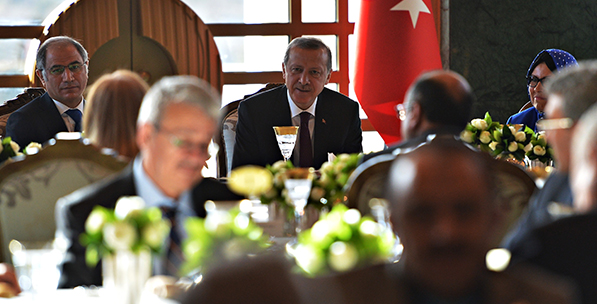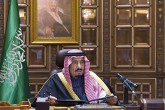Opposition parties have raised with one voice objection to President Recep Tayyip Erdoğan’s proposal to change Turkey’s government to a presidential system. Erdoğan explains the rationale behind the system change along the lines that a presidential system would ensure stability in the government. Indeed, a presidential system introduces a stable and effective form of government that allows the executive to design long-term projects, realizing them without facing bureaucratic hindrances and respond quickly to emerging crises within and outside the country. In contrast, the opposition asserts that a presidential system would concentrate power in one hand for it tends to discharge the system of checks and balances. By eliminating the separation of powers, it may turn Turkey into an authoritarian country with one-man rule.
Like all students of government systems, the opposition might also have been well aware of the fact that a presidential system does not liquidate control mechanisms. Both parliamentary and presidential systems are democratic systems with the ability to uphold fair and regular elections, separation of powers and the rule of law. They are both fundamentally different from an authoritarian regime, which forbids power sharing. Hence, the shift from a parliamentary to a presidential system is but a shift from one democratic regime to another one. It is obvious that the opposition’s objection to a presidential system cannot be justified on technical terms. If so, then why does the opposition object to a presidential system?
THE DISCOURSE OF AUTHORITARIANISM
Of course, it is politics. The opposition in Turkey has been in a defensive position for more than a decade. Political parties such as the Republican People’s Party (CHP), which is an offshoot of the bureaucratic oligarchy, struggle to revert to the old status quo. They have deployed the discourse of authoritarianism in order to block the Justice and Development Party’s (AK Party) attempts to roll back bureaucratic tutelage and uphold excluded social groups in society through the so-called process of democratic openings. For instance, they strive to produce a perception that the country is moving toward a “dictatorship” under Erdoğan’s leadership. To substantiate this claim, they gripe at Erdoğan’s so-called foibles such as bitterness in his public speeches and unruliness in his political maneuvers. To give form to the problem of authoritarianism, the opposition indulges in political opportunism by blaming Erdoğan in person for being larger than life. In other words, he is protested for being too strong.
But where does this strength come from? This is in large measure accounted by structural factors. There is a simple political truism that without favorable structural conditions, no political actor can wield such an overwhelming agency in the political system. Namely, only in the absence or feebleness of collective authority structures can a political actor attain such an influential role. Turkish politics, which is divided into closed and partial ideological clusters, is imbued with a large structural vacuum. It is this structural hiatus that permits Erdoğan to be prominent and fill the existing vacuum of authority.
Nevertheless, not everybody in society recognizes his rule as authoritative, especially those having ideological ties with the bureaucratic oligarchy. As a matter of fact, in a social setting where groups do not share a common ethical-political ground and therefore view each other as enemies rather than rivals, the glimpse of authoritarianism is inevitable. This is because the legitimacy of rule does not spring from the inside, but is enforced from the outside. Regardless of which political actor is on top, the accusation of authoritarianism will easily be on the table since its rule would not be admitted as authoritative, but rather based on power, even if it is obtained through legitimate means such as free elections. Therefore, replacing the ruling party with the opposition, or more precisely, handing d


